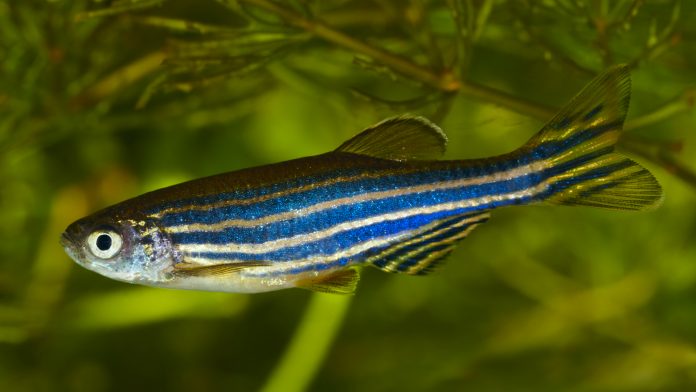A new study conducted by Queen’s University Belfast suggests that zebrafish could aid our pursuit of reaching Mars by understanding how a form of hibernation may provide radio-protective effects.
Hibernation is a physiological condition observed in many species that safeguards them from rough conditions like food shortage and low environmental temperatures. The form of hibernation displayed in zebrafish is known as induced torpor, which is a state of decreased metabolic activity.
Successfully imitating this form of hibernation that offers radio-protective effects could therefore shield astronauts against the harsh conditions of space flight, which includes difficulties like bone and muscle wastage, radiation exposure, vascular problems, and advanced ageing. The team believe if astronauts were able to hibernate on their journey, those challenges could be resolved.
The researcher’s findings have been published in the journal MDPI Cells.
Professor Gary Hardiman, researcher from the Institute for Global Food Security (IGFS) at Queen’s and senior author, commented: “NASA plans to return to the Moon and onward to Mars in the coming years. Recent technological advancements have made space travel more accessible, however, long-term space travel is incredibly detrimental to human health.
“We set out to determine if induced torpor is a viable countermeasure to the harmful effects of spaceflight. If humans could replicate a similar model of hibernation we have observed in the zebrafish, it could increase our chances of making humans a spacefaring species. For example, it would lead to reduced brain function which would cut down on psychological stress. The change to their metabolism would stop them requiring food, oxygen, or water and there is a possibility it would protect their muscles from wasting due to the effects caused by radiation and microgravity.”
In order to carry out their investigation, the team subjected zebrafish to radiation equivalent to what would be experienced on a six-month journey to Mars. The researchers discovered that this radiation resulted in signatures of oxidative stress, stress hormone signalling, and halting of the cell cycle within the zebrafish.
They then induced torpor in another group of zebrafish which were subjected to the same dose of radiation and studied their gene expression patterns to evaluate the protective effects during this induced state of physical or mental inactivity.
The team discovered that torpor lowered the metabolic rate within the zebrafish and led to a radioprotective effect, guarding against the harmful effects of radiation.
Thomas Cahill, PhD student from IGFS at Queen’s University and co-first author of the research, added: “Our results reveal that whilst in induced torpor, the zebrafish showed that a reduction in metabolism and oxygen concentration in cells promotes less oxidative stress and greater resistance to radiation.
“These insights into how a reduction in metabolic rate can offer protection from radiation exposure and could help humans achieve a similar kind of hibernation, counter measuring the damage they currently face during spaceflight.”









